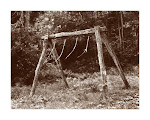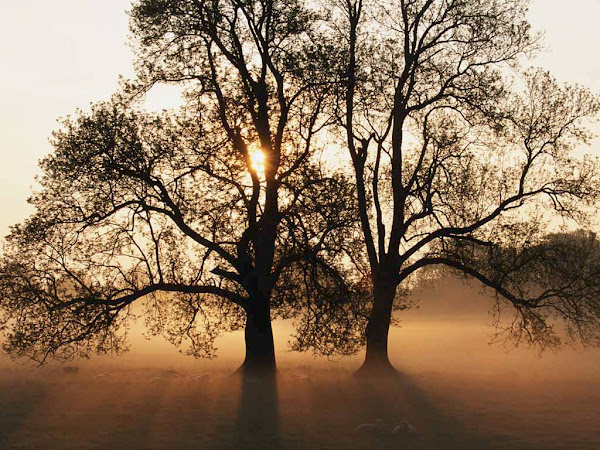The Presumptions of Pursuit
I have spent my entire life pursuing this desire for more than what is.
Thomas Moore
I am a fool. This proclaimed status is not for feigned humility's sake. This is an upfront assertion of the very character of my soul. This is not to denigrate my worth before humankind or God. It is merely to reveal at the outset my inability to speak of the holy and my presumptions in offering up speculations of the invisible. That is what makes me foolish. It is idea that what is beyond can be spoken of with such certitude and bravado.
So I begin with repentance. Forgive me for the parts of the work that lead you away from love truth, goodness and most of all the beauty of the Incarnation. I pray these writings are not an escape but an imaginal door into a world that truly is but only in our hearts.
To utter speculation regarding the infinite and ineffable is by its nature more poetry than the transference of facts. What is beyond is always beyond. What appears empty to this world is full only in our imaginations that we jump start with the metaphors of faith. These metaphors are the really real as they exist to allow us to even wonder about that which we cannot ultimatley know. In these moments of faith, the inexpressible is more prayer, as suffering, ambiguity, paradox and mystery are always dogging our every move. Thus, this work is more about my doubt and anxious moments than clarity and certitude. This offering is less persuasive acclamation and more lamentation and confession. Much of what resides on these pages is also given as gift and offering. When proof is no longer the dominant posture of the soul, mystery can truly become revelation. If the sublime and transcendent do exist, they do so for the sake of beauty and less so for the sake or argumentation and apologetical proof.
I cannot imagine a world without God. Yet, His presence is not merely difficult to feel or know it is also hauntingly absent and full of longing and despair. As I have grown older my inclinations towards God have become less needful of things being certain and concretely provable. To some degree, I am leery of the defensive stratagems that make sure all truth is contained in some repeatable formula. Therefore, in this offering I will sometimes discuss the idea of God rather than assume I am discussing God. The difference is in the gaze of the heart and nature of the engagement. Much of this distinction is reflected in the opaque nature of my speech. My diatribes are by their very nature abstractions. God does not reveal Himself merely because I talk about Him or name Him on a page. He is above naming and speculative assertions. He is beyond the metaphors I choose to point towards Him or allude to His possible presence. He is beyond my rhetoric.
Because of this inability to capture God, I can sometimes imagine Him to not exist. I can feel the despair of attempting to know the unknowable and feeling the absurdity of that attempt. In those moments despair may indeed be a proper response. Like Beckett’s play Waiting for Godot, I have waited for God to reveal Himself upon my beck and call, on my time table, and through my chosen words and descriptions. When He refuses, I can quickly become a cynic and wonder if all my experiences to date have been fictional and make believe. I am agnostic if not atheistic. I am not sure if this disposition is a blessing or a curse. Much like Thomas Moore, however, I find myself caught between the two worlds of suffering and hope. I am, as Moore says, involved in two journeys at once. “Often we have to do two things at once. Affirm and deny, believe and doubt, worship and be skeptical, relate and keep it all empty, Moore contends.”
There are indeed parts of God that are unknowable and if that is the case why endeavor to write about the anonymity of the holy and beyond? Why write about what I cannot properly tell? Is this when my doubt becomes virtue? Is this when my seeking is divine love incarnate, when my imagining manifests itself in faith that which my assertions of intellect were never meant to hold as sacred? Possibly. Who can know these things?
Saturday, December 20, 2008
Subscribe to:
Post Comments (Atom)






No comments:
Post a Comment